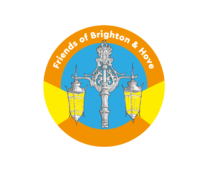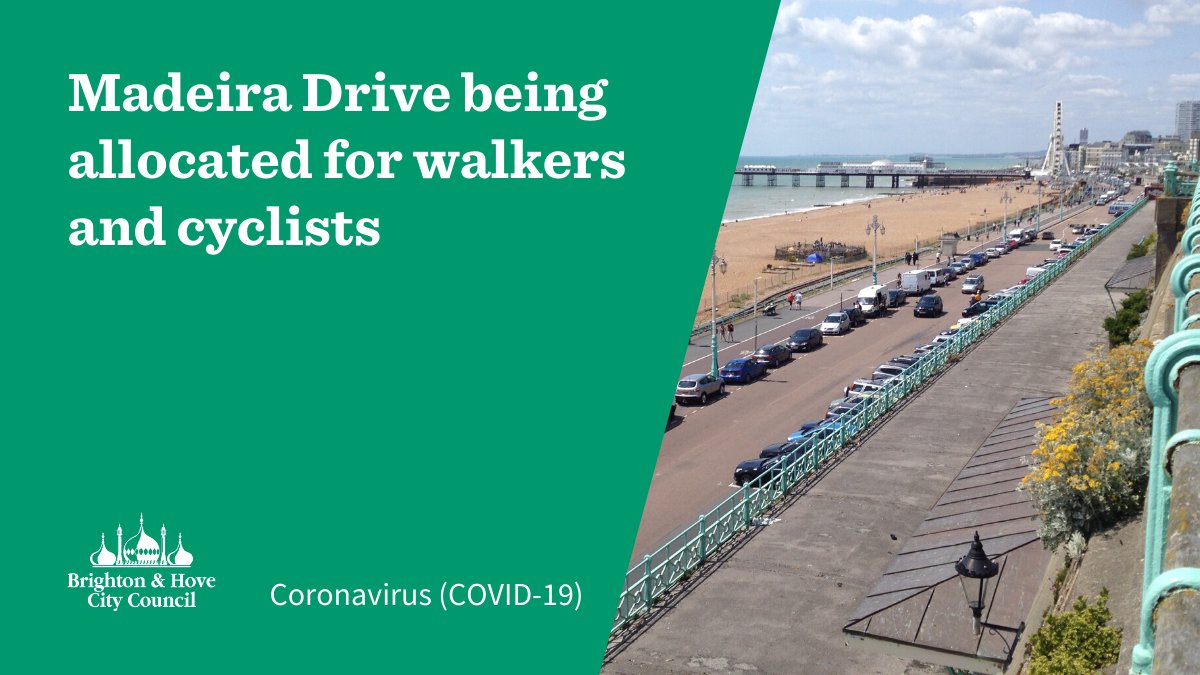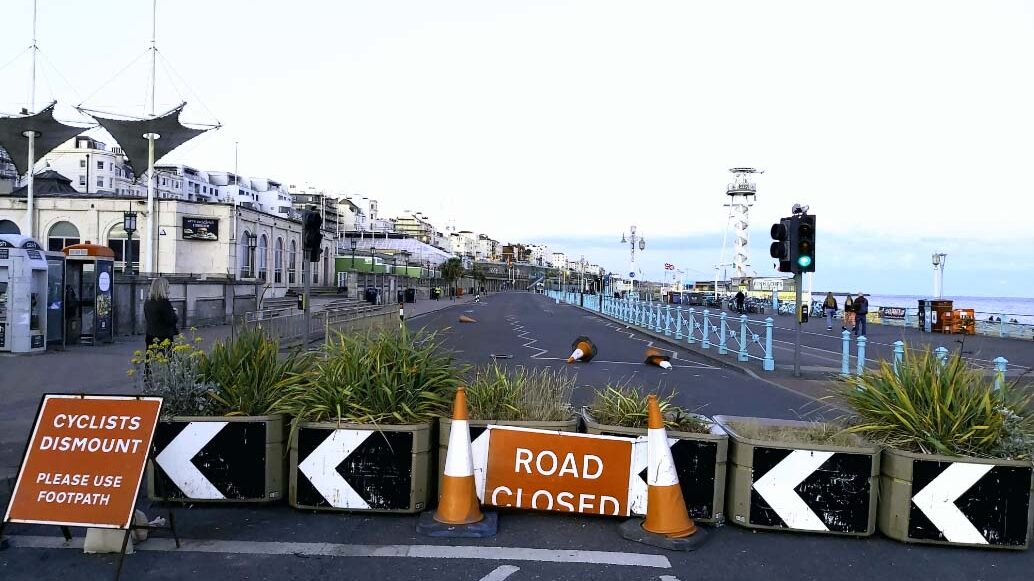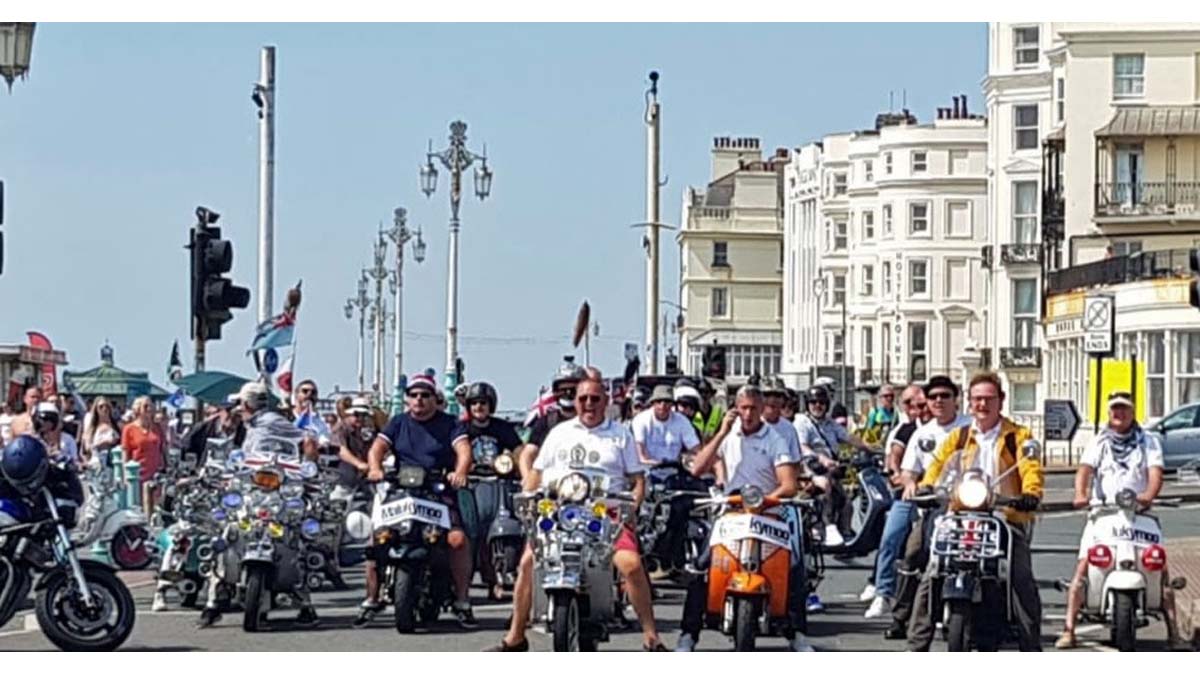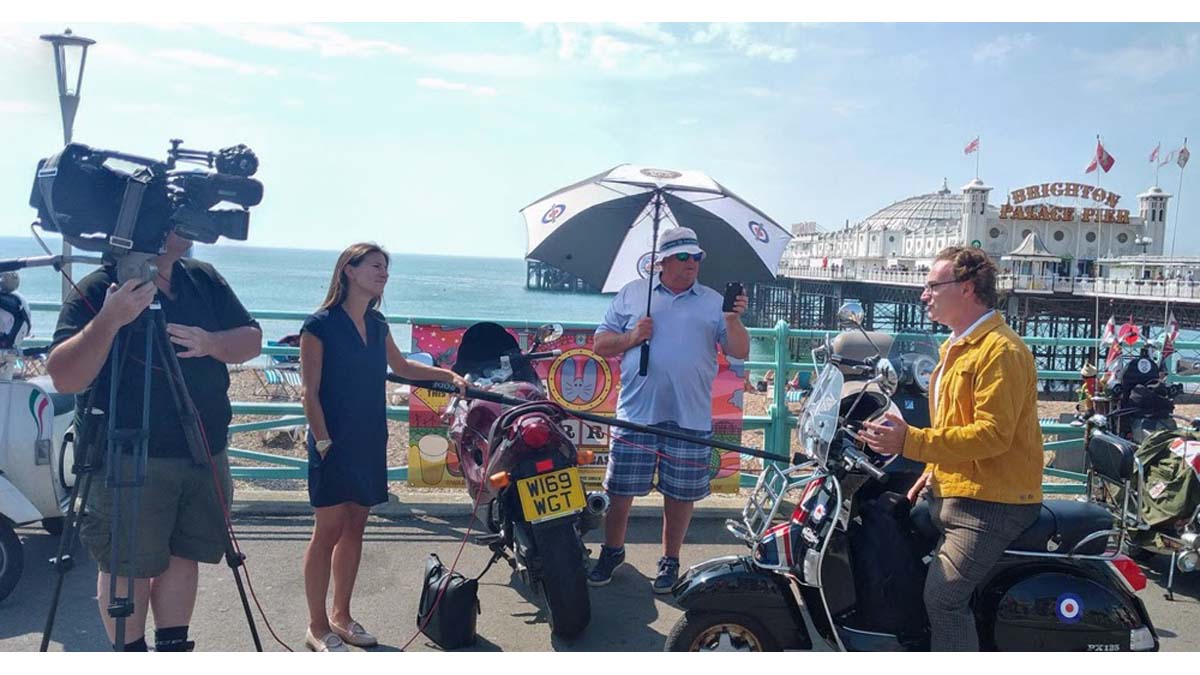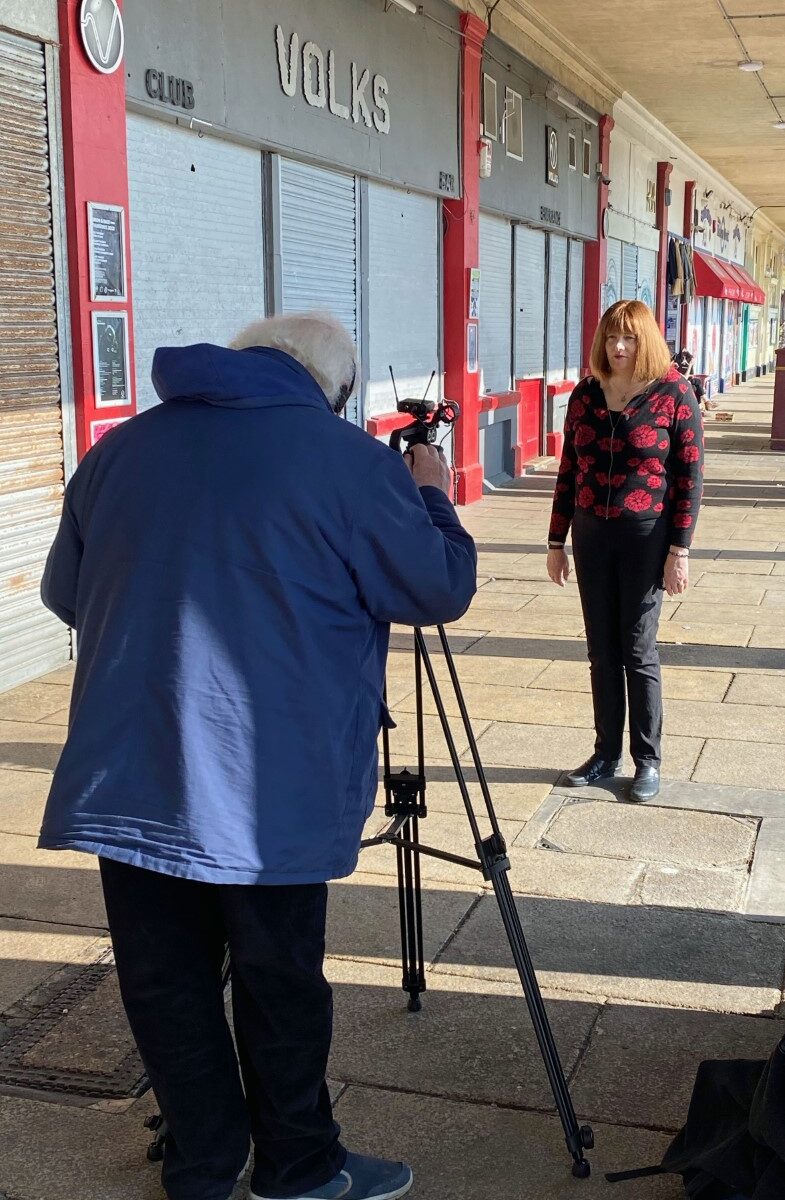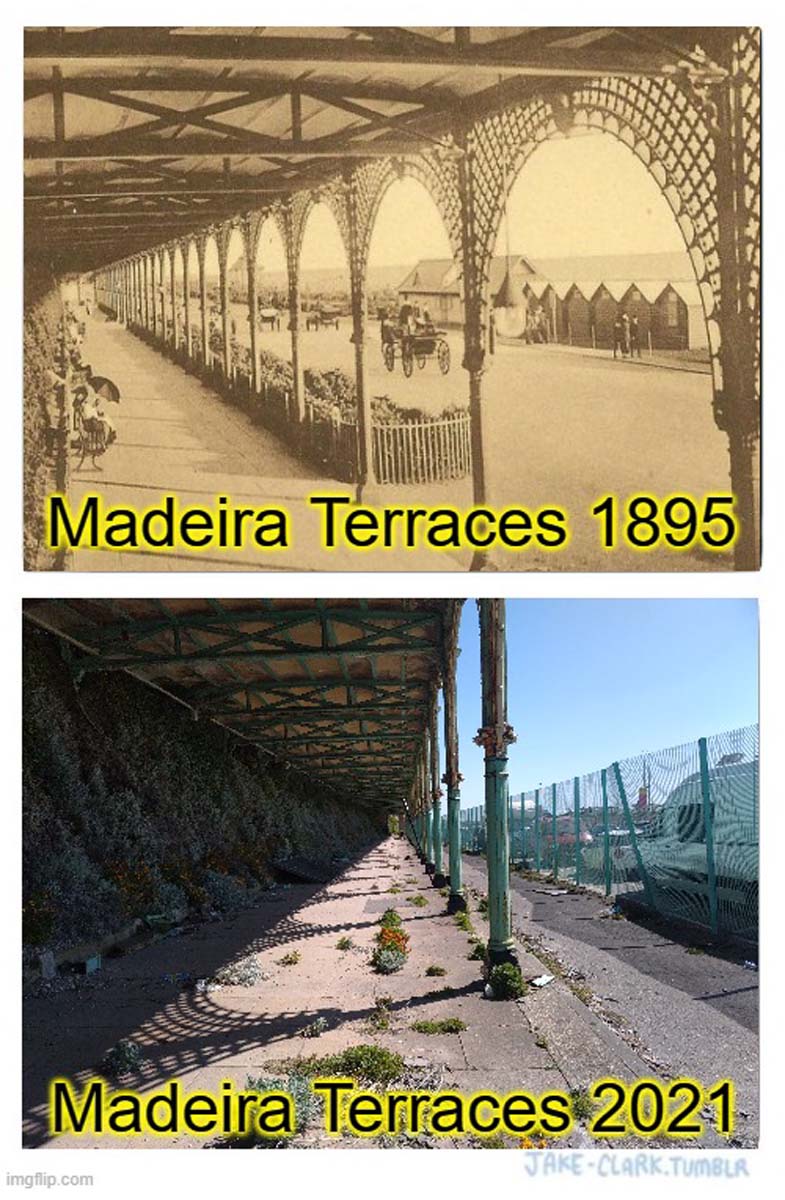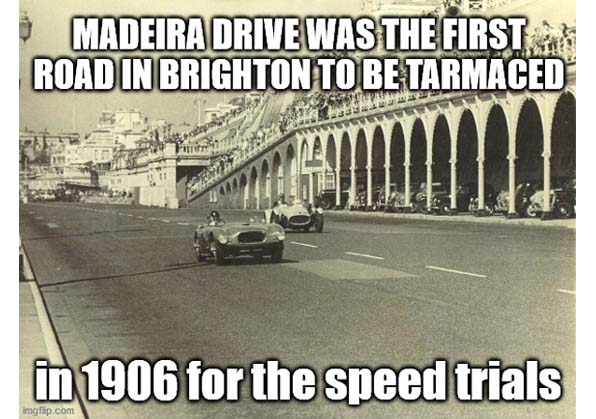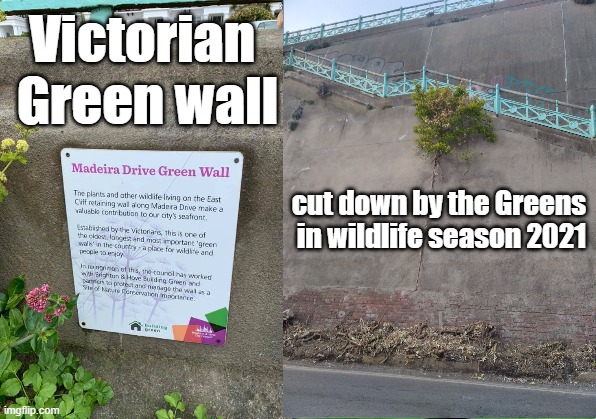The story of Friends of Brighton and Hove started following the ‘temporary’ council closure of Madeira Drive in April 2020 to provide ‘more covid exercise space’ when Laura King’s boyfriend Ollie, a Mod, found out from one of the few remaining cafes open in the Colonnades that a Council Officer had visited the cafe owner and told him the Madeira Drive closure was secretly intended by Brighton and Hove City Council as a permanent measure, no matter that this would doom the businesses along Madeira Drive and all the iconic motoring, biking, Speed Trials and Mod events too, which bring millions of pounds a year revenue into the city. The 363 paid visitor parking spaces in Madeira Drive also served 12 local attractions including the world’s oldest Aquarium. All this with zero public consultation.
Appalled, Ollie and Laura started a petition to reopen Madeira Drive on the council website and a Save Madeira Drive Facebook group, which acted as a motor beneath the petition, and raised nearly 11,000 signatures. They organised protests and attracted local, national and international publicity by getting Mods and Rockers to join forces. Madeira Drive was iconic, appearing in Quadrophenia, Carry On Girls and Genevieve, to name just a few films. Eventually at the next council meeting Ollie and Laura were shocked to witness the council try to disregard their petition – the second highest the council had ever received – and deputation, in favour of a much smaller petition pumped by cycling pressure groups around the world seeking to keep Madeira Drive closed to motorised transport.
During the Madeira Drive campaign other individuals came forward to offer their help and eventually the Friends of Brighton and Hove Citizens’ Action group was formed, spotlighting how a ‘Car-free City 2023’ agenda was intended without public consultation or consent and that every traffic and transport change – including the Old Shoreham Road cycle lane – was to push the city towards this aim by removing paid resident and visitor parking spaces in favour of more and more street furniture including cycle hangars, built out pavements and closed roads and installing duplicate cycle lanes. The group further realised BHCC wished to obstruct all private vehicle use in the city via LTNs, Liveable neighbourhoods, pocket gardens, school streets, ‘mini-Hollands’ and now 20 minute neighbourhoods. It seemingly makes no difference that petrol/diesel vehicles are being switched over to EV, rendering all such schemes pointless if EVs are the environmental answer.
As time went on the action group started exposing financial and councillor expense scandals and realising the Greens and Labour were working in coalition behind the scenes after the fall of Labour owing to an anti-semitic tweet scandal. Nor were the Greens green, chopping down the historic Green Wall in Madeira Drive, felling thousands of trees, many healthy, scrapping the street tree planting scheme and trying to build on two nature reserves – Benfield and Whitehawk – each side of the city, when not gridlocking the city so they could bring in bus gates and eventually emissions charges. The Green/Labour coalition council did plant £400k worth of new trees around the city but they died because they weren’t properly looked after. Then BHCC started shutting down public toilets and the group found themselves involved in that campaign, exposing the fact that BHCC had just spent more than £2.1m refurbishing school toilets across the city in the preceding 18 months, though denying this urgent programme of works was for gender-neutralising purposes. The group then discovered a contract for a new public bikeshare scheme costing £13.5m on the Government contract finder website, but with no mention on the council website of this cost and why it was a priority over city basics with no clear pathway of procedure, financial due diligence and tendering process to be found among committee records And this was just the tip of the iceburg regarding the many projects which took priority over statutory goods and services and the upkeep of the city, while the city council simultaneously pleaded poverty, cutting basic services.
